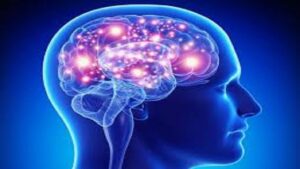
The symptoms of Attention Deficit Hyperactivity Disorder (ADHD) include trouble focusing, impulse control, and hyperactivity management. ADHD sufferers frequently struggle to focus and control their emotions, which can affect many facets of their everyday lives. The ancient meditation practices of mindfulness have gained popularity as a viable treatment for ADHD symptoms and a way to improve general well-being. This article examines the idea of mindfulness, how it relates to managing ADHD, and doable methods that people may use to help them become more focused and serene in their everyday lives.
Recognizing ADHD and Its Difficulties
People of all ages are affected by ADHD, although symptoms usually first appear in childhood. Important signs and symptoms consist of:
Inattention:
Inability to maintain concentration, propensity to become sidetracked, forgetfulness.
Hyperactivity: fidgeting, agitation, and excessive speech.
Impulsivity: Not thinking things through, interrupting other people, not waiting one’s turn.
These symptoms can cause dissatisfaction and low self-esteem by affecting social interactions, work productivity, and academic performance.
Mindfulness: What Is It?
The practice of mindfulness involves being open, curious, and judgment-free when observing the current moment. It entails developing an awareness of one’s thoughts, feelings, physical sensations, and environment. Although mindfulness practices have their roots in Buddhist traditions, contemporary psychology and neuroscience have extensively investigated and adapted them.
ADHD Benefits of Mindfulness
According to research, mindfulness exercises can help people with ADHD in a number of ways, including:
Enhanced Attention Regulation:
One of the main problems associated with ADHD is the brain’s inability to maintain focus and withstand interruptions. Mindfulness activities help to increase this capacity.
Emotional Regulation:
Mindfulness lowers impulsivity and increases tranquility by assisting people in identifying and efficiently managing their emotions.
Decreased Stress and Anxiety:
Mindfulness practices, like body scans and deep breathing, can help reduce the stress and anxiety that people with ADHD frequently encounter.
Increased Cognitive Flexibility:
Mindfulness techniques increase cognitive flexibility, which helps people adjust to changing circumstances and make deliberate choices.
Enhanced Self-Awareness:
People with ADHD can grow in self-awareness and self-compassion by learning to be more conscious of their thoughts and actions.
ADHD Mindfulness Practices
1. Breathing With Focus (Mindful Breathing)
Method: Locate a peaceful area and take a comfortable seat or lie down. Shut your eyes and pay attention to your breathing. Observe how each inhale and exhalation feels. When your thoughts stray—which they will—gently return them to your breathing without passing judgment.
Benefits: Reduces impulsivity, relaxes the mind, and improves attention.
2. Meditation Using Your Body Scan
Technique: Take a comfortable seat or lie down. Shut your eyes and focus on various body parts one by one, beginning at your toes and working your way up. Without making any attempts to alter them, pay attention to any tightness or sensations in any body part.
Benefits: Encourages rest, heightens awareness of the body, eases tension in the body and mind.
3. Walking With Awareness
Technique: In a calm environment, go for a leisurely stroll while paying attention to the details of each step, such as your feet’s contact with the ground, your legs’ motion, and the rhythm of your breathing. Remain mindful of your surroundings and in the moment.
Benefits: Enhances concentration, centers the mind in the here and now, and integrates mindfulness with physical exercise.
4. Conscientious Consumption
Method: Select a tiny food item (such as a slice of fruit or a raisin). Before eating, inspect it closely—its texture, color, and shape. Savor every bite while chewing slowly and deliberately, paying attention to any sensations.
Benefits: Increases attentive consumption, improves sensory awareness, and promotes slower eating and food satisfaction.
5. Journaling with awareness
Method: Allocate a specific period of time every day to jot down your ideas, emotions, and encounters without passing judgment. Reflect on any trends or triggers you detect in your ADHD symptoms.
Benefits: Promotes emotional processing, improves self-reflection, and clarifies thoughts and emotions.
Including Mindfulness in Everyday Activities
Taking into account the following advice can help people with ADHD successfully incorporate mindfulness into their regular routines:
Consistency:
To develop familiarity and receive long-term benefits, practice mindfulness practices on a daily basis, even for brief periods of time.
Start Small:
As you get more experience with mindfulness, start with easy exercises and progressively extend or complicate them.
Use Reminders:
To encourage mindfulness activities throughout the day, set reminders on your phone or take use of signs in your surroundings.
Be Patient: Recognize that practicing mindfulness takes time and effort. Be honest with yourself and approach every session without passing judgment on yourself.
Apps and Resources for Mindfulness
For those with ADHD, a number of smartphone apps and internet resources provide guided mindfulness exercises:
Headspace: Offers mindfulness activities and guided meditations for both novice and seasoned users.
Calm: Encourages mindfulness and relaxation with guided meditation sessions, breathing techniques, and sleep stories.
With a large collection of free guided meditations, mindfulness classes, and talks by meditation instructors, Insight Timer is a great resource.
Mindful.org: Offers guided activities, videos, and articles about mindfulness and how to use it in everyday life.
In summary
With mindfulness, people with ADHD can effectively manage their symptoms, sharpen their focus, and improve their general well-being. Focused breathing, body scans, and mindful walking are a few easy yet powerful ways to cultivate mindfulness, which helps people become more self-aware, emotionally stable, and cognitively flexible. Regular mindfulness practice not only helps with day-to-day functioning but also fosters resilience in handling the difficulties brought on by ADHD. For those with ADHD, integrating mindfulness into everyday routines can result in significant gains in attention, impulse control, and stress management, which will ultimately lead to a more balanced and satisfying existence.
























